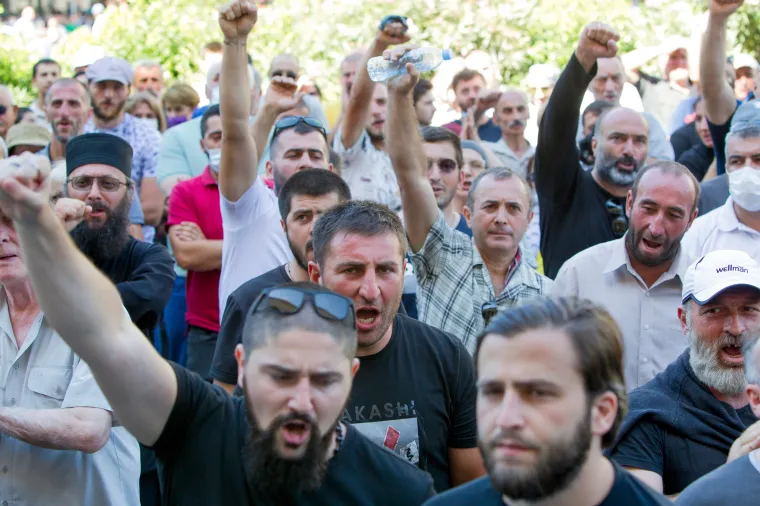New York, April 7, 2022 – The Committee to Protect Journalists on Thursday welcomed Georgian authorities’ recent convictions of 26 people over their attacks on journalists during mob violence in July 2021.
“We welcome the convictions of 26 people for their part in last July’s mob attack on dozens of Georgian journalists, including the brutal beating of camera operator Aleksandre Lashkarava,” said Gulnoza Said, CPJ’s Europe and Central Asia Program coordinator. “Authorities must ensure that all perpetrators are held to account, including those who organized the violence and any authorities whose negligence may have facilitated it.”
On July 5, 2021, hundreds of anti-LGBT protesters attacked more than 50 journalists covering a pride march in Tbilisi, the capital, as CPJ documented.
On Monday, April 4, the Tbilisi City Court convicted six people on charges including violent interference in journalistic activities and participating in organized group violence that caused harm over their attacks on TV Pirveli camera operator Aleksandre Lashkarava and his colleague Miranda Baghaturia, according to news reports, a statement by the Georgian prosecutor’s office, and Nika Simonishvili, a lawyer who represented Lashkarava’s family and other journalists injured in the attacks, who spoke to CPJ by phone.
One of those defendants was also convicted of causing serious bodily harm to Ilya Tvaliashvili, a camera operator for the broadcaster Pirveli Arkhi, Simonishvili said.
The court sentenced those six defendants to five years each in prison, those sources said.
In two other trials the same day and one on Wednesday, the court also sentenced 19 others to prison terms of one to three years on charges including persecution, interference with journalistic activities, and participation in group violence over their attacks on other members of the press at the anti-LGBT demonstration, and fined a 26th defendant 5,000 lari (US$1,600) for the same offenses, according to those sources and media reports.
Lashkarava, who sustained a concussion and facial fractures in the attack, for which he received surgery, was found dead in his home six days after the incident. An autopsy conducted by Georgian authorities concluded that he died as a result of a drug overdose, according to news reports and Simonishvili, who said that Lashkarava’s family lawyers “lack trust” in the autopsy because authorities had refused to allow international experts to participate, and because they believed authorities had politicized the case.
An independent expert who participated in the autopsy at TV Pirveli’s request agreed with the government’s findings, reports said.
Simonishvili, head of the Georgian Young Lawyers Association, said he hoped that the convictions could pressure authorities to investigate the mob attack’s organizers as well as public officials whose inaction may have contributed to the violence.
[Editors’ note: This article has been changed in its eighth paragraph to clarify the timeline surrounding Lashkarava’s death.]
